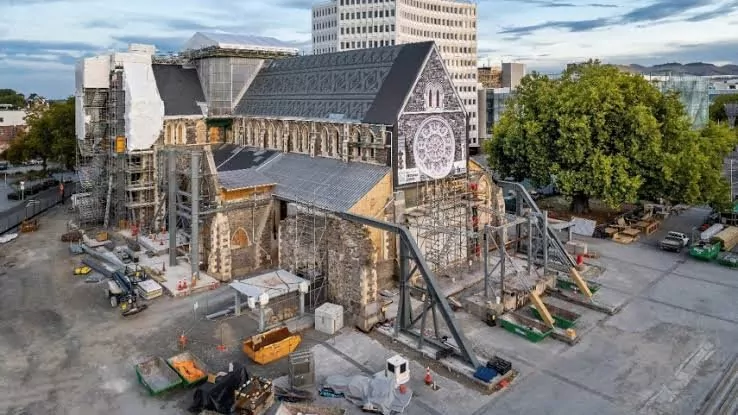Escaped youth tracked by Eagle helicopter, found hiding in New Brighton
The young person who escaped from a youth justice facility in Rolleston has been located...
In an interview with Chris Lynch, Canterbury Police District Commander Superintendent Tony Hill has responded to public concern over a proposal to centralise some rural police roles. He said the proposal is about improving frontline services, not withdrawing from communities.
Superintendent Hill said the number of sworn officers in Canterbury will remain the same under the proposed changes.
“We’re not downsizing any staff,” he said. “The sworn numbers that we have right now will be the same sworn numbers that we have while the proposal is in place.”
Hill clarified that police are not closing stations across the district, with one exception.
“We’re not closing stations, with the exception of Arthur’s Pass,” he said. “We haven’t had anyone there for now over two years. So with the exception of Arthur’s Pass, we’re not closing any stations either.”
Asked what prompted the proposal, Hill said the process began about 18 months ago when police started to review how well they were meeting demand across the district.
“We were seeing on occasions our staff were starting a shift, and there was already a number of jobs that weren’t attended from the previous shift. It put a lot of pressure on them. They weren’t happy with the fact they’d got so far behind, because they want to provide the best service they can,” he said.
Hill said this prompted a series of internal workshops with staff to ask difficult questions about service delivery.
“We talked about what we were getting wrong, and how we can provide a better service to the community,” he said.
As a result, police examined the district from an evidence-based perspective to better understand where response times were strongest and where they were not.
“That review told us that our structure wasn’t fit for purpose,” Hill said.
He acknowledged that under the proposal some officers, including community constables, may no longer be based in the same rural communities but instead relocated to centralised hubs like Rolleston or Rangiora.
“In the proposal, it is bringing some staff into a more centralised hub,” he said. “But the point I want to make is that actually for many of those places, that’s how we are providing the service right now.”
He pointed to Selwyn as an example of a district already operating under a centralised model.
“We’ve got a 24/7 response out there, even though our structure doesn’t reflect that. Rolleston’s a hub that’s growing exponentially, and we need to make sure we’re providing the right resources to that area.”
Hill said around 120 staff, or 12 percent of the district, would be impacted by the proposal.
“For many of them, they are already in the roles that we are proposing. It’s a small number that are outside that,” he said.
When asked if this means officers will be pulled out of rural communities where they are embedded, Hill said the goal is not to remove officers but to free up their time to do meaningful work.
“We pride ourselves as an organisation that our staff are great problem solvers,” he said. “Some of them are being distracted from doing that by other demand that comes in.”
He confirmed that about five officers are proposed to move into road policing.
“That’s where most of the demand is,” he said. “We’ve got growing demand for our road policing services and a diminishing demand for more general services.”
Hill said this does not mean that problem-solving police work in rural communities will disappear.
“What we don’t want to take away from our rural communities is that good problem-solving capability,” he said. “We just want to make sure we free up enough of their time to actually be able to spend some concerted effort to do that. These things often take many months, and involve other agencies. That’s not something a public safety team or an emergency response in the middle of the night can do.”
He rejected the suggestion that the changes are about pulling underutilised officers from rural areas just to keep them busy.
“Not quite,” he said. “If your location, albeit rural, is quite close to a base that provides a 24/7 response, we’re going to see an uplift in those numbers. So if you call us at two o’clock in the morning, we’ll respond promptly. And we’ll still leave that role there for the community constable, the person you know and trust.”
Hill said the changes are more about “a change in focus” rather than a removal of roles.
When asked about public fears that closing stations and removing officers could reduce public safety and slow emergency response times, Hill said the plan would not affect more isolated communities.
“For places in the district that are not in a location that you could respond to promptly, we’re not changing that service,” he said. “This change is only for locations that are reasonably close to a 24/7 hub.”
He said officers will still patrol across wider areas regardless of where they are based.
“We often talk about the location they work from, but the reality is they patrol on a much wider basis,” he said. “We are very mindful about what a reasonable response time is, and we want to hear from staff as part of the feedback process.”
Hill reiterated that this is a proposal, not a final decision.
“We’ve done a number of workshops, we’ve reviewed the evidence, and we’ve talked to our staff,” he said. “Now we want to hear what they think in terms of service delivery. Some staff have said they like it and want it brought in straight away. Others have questions. And that’s important. We want to know what we’ve missed or what we’ve misinterpreted.”
Responding to criticism from groups like Federated Farmers, who have said the proposal will leave rural communities feeling unsafe, Hill said those claims are not backed by facts.
“It simply isn’t true,” he said. “I’ve seen some of the rhetoric, that we’re closing stations or taking away their constables. That’s not accurate. We’re proposing to disestablish some roles so we can establish others. In many of these areas, the biggest risk is actually on our roads, and too many people have died. We want to do better there.”
Hill also said the district review includes plans to improve other parts of the police service.
“We’re having an uplift in our frontline numbers,” he said. “We want to be able to respond quickly if you ring us at two in the morning. That means increasing our public safety teams, our road policing numbers, and our resources focused on youth offending.”
He said Canterbury has high levels of youth crime and police need to improve their response.
“We want to be better at resolving those matters,” Hill said. “We also want our frontline staff out from behind desks. We’ve built in workforce behind them to help with that.”
Hill said public feedback has been clear.
“Our communities want us to be more visible. They want us tackling gang problems, preventing them from becoming entrenched. They want safer roads. They want retail crime addressed. And we are seeing real progress in that area.”
He said a recent operation targeting repeat shoplifters in Christchurch has shown early results.
“That operation was about identifying and dealing with the recidivist, hardened offenders,” he said. “We’ve got beat teams out there now and they’ve been great for the metro area, but they don’t always carry those more serious files. That’s why we’ve created a team that connects the dots.”
“We’ll pick someone up for one case, and our team will look across all the other information to build a fuller picture of their offending. That gives us a stronger case in court.”
He also acknowledged the role of security guards in retail environments.
“They do a good job,” he said. “They might not always be able to apprehend someone, but they collect useful images, and they help us identify repeat offenders. That information is crucial.”
Hill said police are also exploring new technology to improve operations. He cited a recent case where a missing elderly person was found thanks to a geo-targeted emergency alert sent to people’s phones in a specific area.
“That technology was instrumental,” he said. “We’re really interested in how we can use tools like that more often.”
He said there are ongoing discussions around facial recognition and geo-alerts for active crime scenes or wanted offenders.
“It’s something we’re looking at very closely. Technology is improving all the time, and we’re committed to using it responsibly. We need to strike the right balance with privacy, but we can’t ignore the potential it has.”
Hill said the district review is ultimately about building a more capable and responsive police force.
“This proposal positions us to move into the future in a really positive way,” he said.


